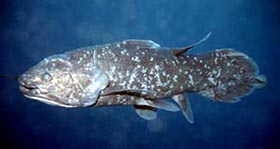1. Oxford English Dictionary; the term was then used by an anonymous author reviewing the performationist embryology of the Dutch entomologist Jan Swammerdam. In Latin evolutio simply means "to unroll" and implies no more than the unpacking of what is already present in a compact form. Evolution, denoting the natural development of life on earth, was popularized by the philosopher Herbert Spencer in the 1860s. For a brief overview of the history of the use of the term, see Robert I. Richards, 'Evolution,' in Keywords in Evolutionary Biology, ed. by E. F. Keller and E. A. Lloyd, (Cambridge, Mass: Harvard University Press, 1992), 95-105.
2. While the myth of spontaneous generation was finally disproved by Louis Pasteur in a now-famous experiment in 1861, every evolutionary theory assumes that spontaneous generation occurred at least once, from which all other life-forms evolved.
3. Cited in Vernon Blackmore and Andrew Page, Evolution The Great Debate (Oxford: Lion Book,1989), 10. Lucretius was a Roman philosopher who lived in the 1st Cent BC.
4. Robert Huxley, 'John Ray,' in The Great Naturalists, ed. by Robert Huxley (London: Thames & Hudson, in association with Natural History Museum, 2007), 97. See also, Charles E. Raven, John Ray, Naturalist: His Life and Work 2nd ed. (Cambridge: Cambridge University Press, 1950).
5. While John Ray's hopeful sigh of finding living representatives of such fossils have largely been in vain, there are examples of such finds. Probably the most famous is the coelacanth, an oily fish with lobed fins, that until a specimen was caught off South Africa in 1938, was known only in fossil forms and thought to have become extinct 70 million years ago. Since then many specimens have been found, and filmed in their native environment. In 1997, another specimen, representing a new species, Latimeria menadoensis, was found in Indonesian waters.

Coelocanth Latimeria menadoensis. Photo©Mark V. Erdmann
6. Robert Hooke, Micrographia, 1665 fascimile edition (Mineola, NY: Dover Books, 2003); Robert Hooke, Micrographia, fascimile edition on CD-ROM, with introduction by Brian J. Ford (London: John Martyn and James Allestry).
8. Hooke, "Paper read to the Royal Society of London, 15 September, 1668," in The Posthumous Works of Robert Hooke, ed. by Richard Waller (London: ####); cited in John C. Greene, The Death of Adam: Evolution and Its Impact on Western Thought (Ames, Iowa: Iowa State University Press, 1959), 45.
5. Alan Cutler, 'Nicolaus Steno,' in The Great Naturalists, ed. by Robert Huxley (London: Thames & Hudson, in association with Natural History Museum, 2007), 87-91. Steno later converted to Roman Catholicism, became a priest and was later made a bishop. He was beatified by the Roman Catholic Church in 1988. See also, Alan Cutler, The Seashell on the Mountaintop. A Story of Science, Sainthood, and the Humble Genius Who Discovered a New History of the Earth (New York/London: Dutton/Heinemann, 2003).
20. Letter from Charles Darwin to Charles Lyell, 18 June 1858.